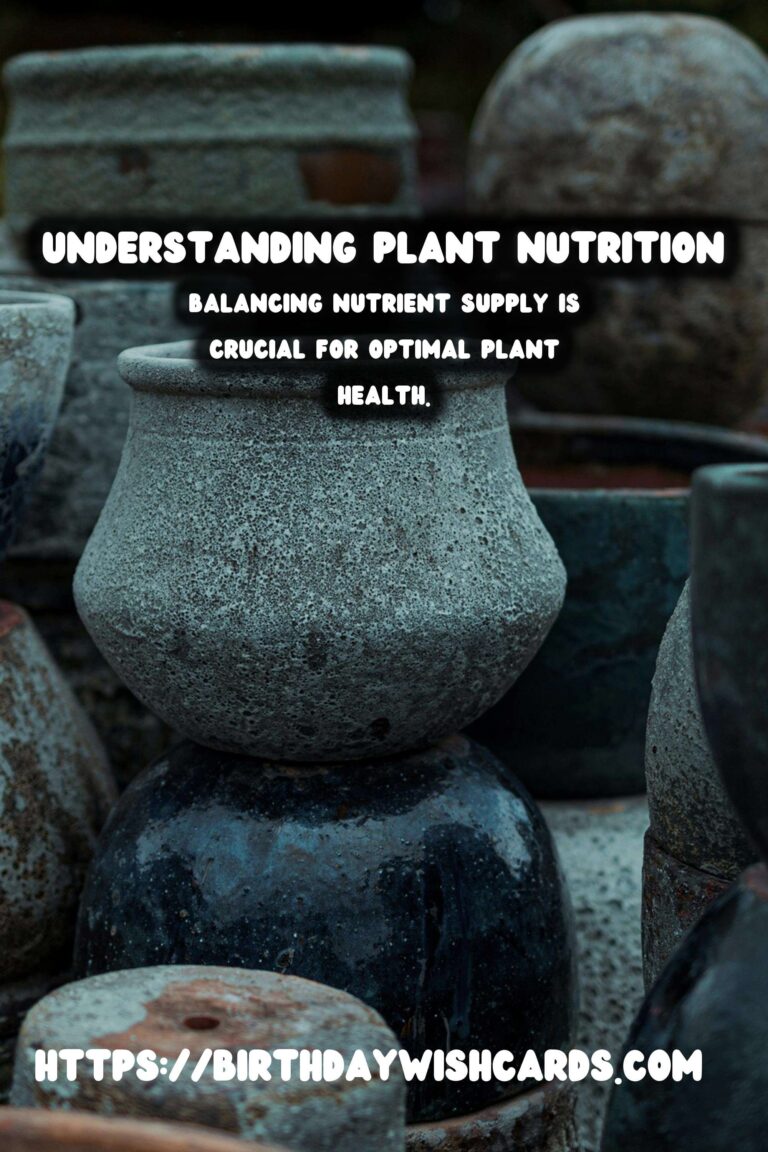
Plants, like all living organisms, require nutrients to grow and thrive. These nutrients are categorized into two main types: macronutrients and micronutrients. Understanding the role of each is essential for anyone involved in agriculture, gardening, or plant care.
The Importance of Nutrients in Plant Growth
Plants need a variety of nutrients to complete their life cycles. These nutrients support various physiological functions including growth, photosynthesis, and reproduction. A deficiency in any of these nutrients can lead to poor plant health and reduced yields.
Macronutrients: The Building Blocks
Macronutrients are required by plants in larger quantities. They are fundamental to plant structure and metabolism. The primary macronutrients include nitrogen (N), phosphorus (P), and potassium (K), often referred to as N-P-K.
Nitrogen (N)
Nitrogen is a vital component of chlorophyll, the compound plants use in photosynthesis. It also plays a crucial role in amino acids, the building blocks of proteins.
Phosphorus (P)
Phosphorus is important for energy transfer within the plant. It is a component of ATP, the energy currency of cells, and is also critical for root development and flowering.
Potassium (K)
Potassium regulates various physiological processes, including water uptake, enzyme activation, and photosynthesis. It helps plants withstand stress conditions such as drought and disease.
Other macronutrients needed by plants include calcium (Ca), magnesium (Mg), and sulfur (S).
Micronutrients: The Essential Trace Elements
Micronutrients are required in smaller quantities but are just as crucial for plant health. They include iron (Fe), manganese (Mn), zinc (Zn), copper (Cu), molybdenum (Mo), boron (B), and chlorine (Cl).
Iron (Fe)
Iron is essential for chlorophyll synthesis and acts as a catalyst in various biochemical reactions.
Manganese (Mn)
Manganese is involved in photosynthesis and nitrogen assimilation. It helps in the formation of some enzymes required for plant metabolism.
Zinc (Zn)
Zinc is important for the synthesis of plant hormones and enzymes. It also plays a role in growth regulation.
Copper (Cu) and Molybdenum (Mo)
Copper and molybdenum are involved in enzyme systems that affect photosynthesis and nitrogen fixation respectively.
Boron and chlorine are essential for cell wall formation and osmoregulation.
Balancing Nutrient Supply
To ensure optimal plant health, it is crucial to provide a balanced supply of both macro and micronutrients. Soil testing can help determine the nutrient needs of your plants, allowing for precise fertilizer application.
Conclusion
Understanding the role of micro and macronutrients is fundamental for successful plant cultivation. By ensuring that plants receive the right balance of nutrients, you can enhance their growth, yield, and resistance to diseases.
Plants require nutrients to complete their life cycles. Macronutrients include nitrogen, phosphorus, and potassium. Micronutrients are essential trace elements like iron and manganese. Balancing nutrient supply is crucial for optimal plant health. Soil testing can help determine the nutrient needs of your plants. 









#PlantNutrition #Gardening #Macronutrients #Micronutrients #Agriculture




